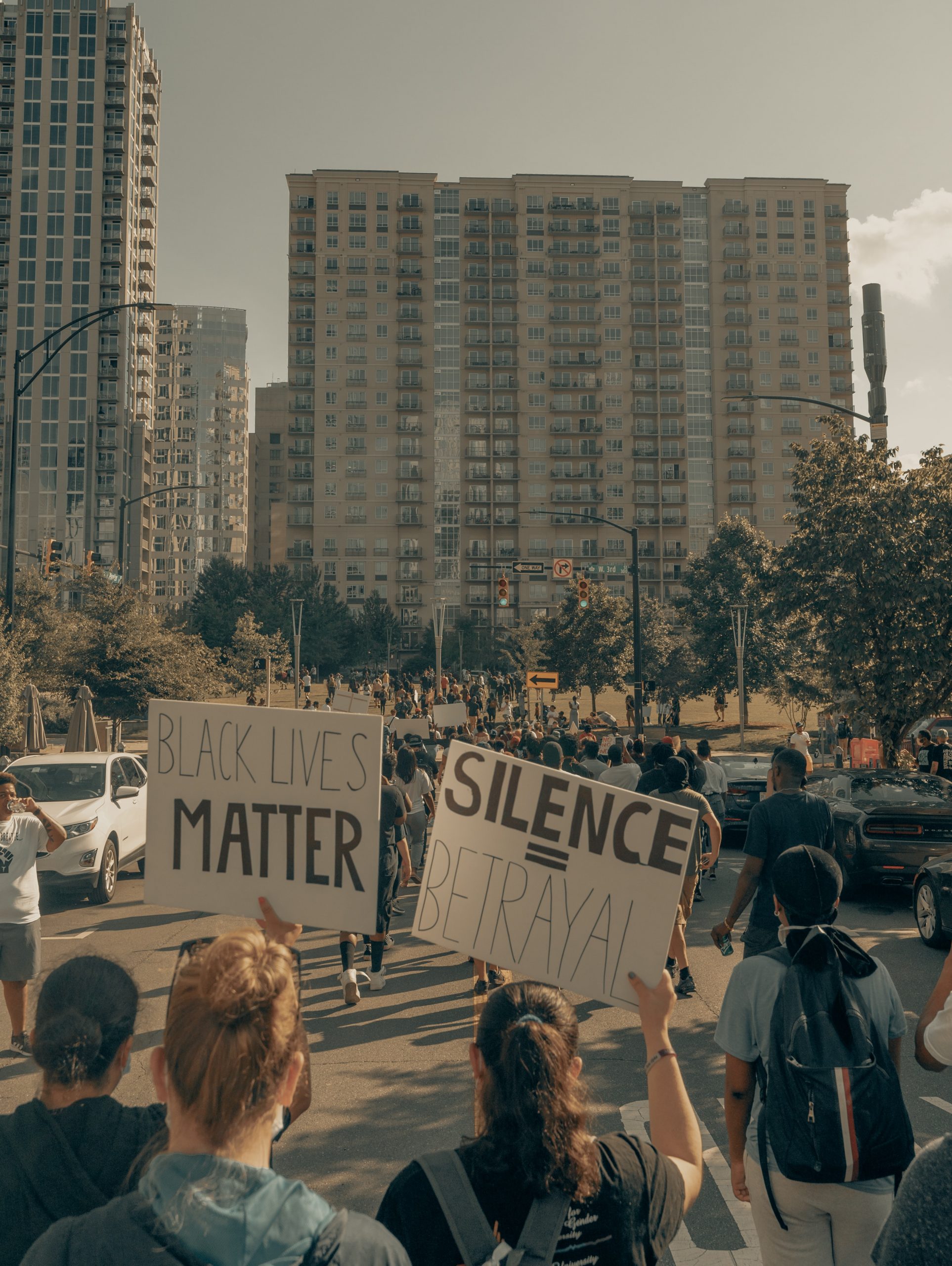
Examining the function of the penalty doctrine in Contract Law following Makdessi v Cavendish in the Supreme Court
July 18, 2020
BLM Series: Defunding the police
July 20, 2020Meagan Leightley interviews Lorraine Chimbga, UCL and LSE Graduate and future tech trainee at a Magic Circle Firm. They discuss how Lorraine entered into the legal sector, the open letter she wrote publicly addressing law firms in relation to the BLM movement on Instagram and what more can be done to increase diversity within firms.
Could you tell us a bit about yourself and how you entered the legal profession?
I obtained my undergraduate law degree from University College London (UCL), during which time I had the opportunity to study Information Technology Law at the London School of Economics (LSE).
Alongside this, I sit on the board at the Society for Computers and Law where I champion and educate on the intersections between law and technology. Following my graduation, I worked in Fintech coding financial regulations into a software as a service solution. Currently I work in Legaltech where I train artificial intelligence to review commercial agreements. Next year I will be starting my tech training contract at a Magic Circle firm.
Did you face any challenges entering the profession as a black woman?
I wouldn’t say I faced overt challenges; however, I grew up with the understanding that I had to work twice as hard to only be seen as half as good. Additionally, I grew up in Zimbabwe and migrated with my family to Manchester when I was ten years old. Back then we didn’t really appreciate the intricacies of networking, the system and exactly what it took to be a lawyer.
My main challenge was that I had no clue about the profession really, and I didn’t really have any connections.
You made an amazing statement on your Instagram addressing law firms and graduate recruitment teams in relation to BLM, could you tell us a little about that? How did you feel doing it and how did you find the firms responses?
I currently run an Instagram page where I talk about my journey from being a law student to being a future lawyer. In everything I do I try to be open and welcome discussions. When I saw the inaction from law firms, I understood that this was a tough issue but for me personally, it didn’t quite marry up with the image that law firms often promote and highlight in their diversity and inclusion efforts.
It was definitely a scary moment for me as I debated whether or not to publicly address law firms in an open letter. Ultimately, I came back to the reason I believe the law exists, to protect and provide a fairer society for all. That’s what drove me in that moment.
I didn’t get a response directly, but in the following days more firms began to release their public statements on how they would be tackling racial inequality and addressing this within their own organisations. Some were just statements, and some have continued the conversations with tangible steps and initiatives as to what this would involve. It might be small but for me it’s a win.
Secondly, I received numerous messages from aspiring lawyers, future lawyers and current lawyers who had also wanted to address their firms but were afraid to do so. For me, that there is the problem, we shouldn’t be afraid to address racial inequality. It is a tough subject and nuanced, but ultimately it should always come down to wanting to live in a fairer world.
Do you believe the legal profession is doing enough to encourage individuals from the BAME community to join the field? If not what more could be done?
Personally, I would say perhaps not as much as we may believe. A recent survey by the SRA showed that only about 3% of the lawyers within the profession are Black. Another article showed that only 6 out of the over 800 partners within Magic Circle firms were Black, and with that two of the Magic Circle firms did not have any Black partners.
While over the year’s diversity schemes have grown and implemented changes to attract talent, we have to now turn to questioning why those statistics do not match the retention levels. It is more than just attracting the right type of talent we also have to consciously foster an environment where different is not merely tolerated but actually accepted.
What do you believe the legal profession can do to encourage minority employees to effectively call out discrimination and racism comfortably within the industry?
I believe it begins with encouraging a culture where people aren’t afraid to speak out about their lived experiences. More often than not, people don’t speak out for a fear that they will be labelled or singled out as the “troublesome” one. In the aftermath of the protests last month, personally I saw countless stories from people who had felt this fear in the corporate world.
To begin to address this I think it starts with making it clear that it is ok to have these conversations and to encourage the continued learning for all. For example, with the Society for Computers and Law, we held an open forum discussion last month as a first step to encouraging this conversation and debate.
That being said, I would suggest that the question asked above is itself the part of the wider problem. Placing the burden of ‘calling out’ on the individuals who currently shoulder the burden of whatever action(s) require calling out is unfair.
I think the legal industry can also publicly educate itself in a manner of speaking, that way from the outside looking in we can see who is invested in change and not just brochures with Black and Brown people on the face of them.
Calling out shouldn’t only be the responsibility of minorities but working together with allies. Particularly those in power who wouldn’t risk the possibility of being dismissed and or ostracized in their place of work.
If you had one piece of advice for black women entering the legal profession what would it be?
Do not be intimidated by your difference, instead embrace it. Now more than ever it is important to hear from all backgrounds and lived experiences, lets continue to look for ways that we can lift each other up and own our spaces.
Article by Meagan Leightley





